Evil’s days may be numbered, at least if Marvel’s X-Men: Apocalypse is a harbinger of things to come. No, I’m not suggesting that this creaky, silly movie has solved the world’s problems, or even cinema’s. Instead, it seems to be inadvertently tolling the funeral bells for comic-book villainy, that once-robust institution of camp and calamity. To be fair, the forces of evil were already looking a bit frail. The good recent Marvel movies—namely, Guardians of the Galaxy and Captain America: Civil War—succeeded not because of their villains’ appeal but their absence; both films were essentially hangout comedies that derived their pathos from rifts between their heroes, not battles against fearsome foes. Now, future filmmakers might well be tempted to go that route, as X-Men: Apocalypse illustrates the perils of hitching your movie to a lackluster heavy. Comic-book characters may be virtually invincible, but there is nothing more fatal to the vehicle that carries them than a lousy bad guy.
The baddie here is En Sabah Nur, though he’s better known as Apocalypse. (He ominously informs us that he’s been called many names throughout history, though “His Blandness” is not among them.) We first meet him, during a screechingly awful prologue, in ancient Egypt, which he rules as a pharaoh. A sort of vampiric mutant, Apocalypse has acquired enormous power by siphoning the abilities of lesser mutants into his own body, a process that director Bryan Singer conveys through amateur laser displays and muddily conceived 3-D visuals. During one particular transfusion of super-blood, things go awry, and Apocalypse finds himself entombed in one of his pyramids. Humans being the meddlers that they are, a cult eventually disturbs his slumber, and he emerges in 1983, ready to let loose five millennia worth of pent-up aggression.
Which proves to be far less exciting than it sounds. The best movie villains inspire a combination of fear and awe through the remorseless exercise of their power, but while Apocalypse is an undeniably capable death-dealer, he is entirely lacking in charisma. The manner in which he disposes of his enemies is clean, efficient, and completely torpid. His pet move is to roll his eyes back into his head until we see only the whites, at which point his bidding is automatically done. Don’t like the guy who just mocked you? Eye-roll, he’s a statue. Interested in giving your lieutenant some spiffy wings? Eye-roll, he can fly. Want to kill the 20 people standing right in front of you without lifting a finger? Eye-roll, they’re dead. This guy isn’t a god—he’s a photo-shopper.
Apocalypse is played by Oscar Isaac, and let me pause to mourn the suffering of one of the world’s finest actors. Over the past few years, Isaac has established himself as a performer of exquisite subtlety and effortless charm, in roles as wide-ranging as a folk singer, a gangster, and a mad scientist. Last year, he proved his blockbuster mettle in Star Wars: The Force Awakens, and so the prospect of him playing a villain in a summer tentpole was tantalizing. But here, he is defeated by the sheer banality of his character. There is simply nothing that Isaac can do with this part, no way for him to bring color or life to such a glum, grandiloquent figure. Because he’s Oscar Isaac, he manages to strike a few grace notes—a tremble of genuine menace here, a chord of dry humor there—but for the most part, he’s just a dude playing dress-up.
Apocalypse’s dullness is Apocalypse‘s greatest flaw, but it is not its only one. There is also the matter of his four loyal horsemen, three of whom are just as insipid as he is. They include Angel (Ben Hardy, flat), the aforementioned winged avenger; Ororo Munroe/Storm (Alexandra Shipp, trying), a sullen thief with big dreams; and Psylocke (Olivia Munn, looking hot and doing squat), a thug with a flashy sword, a tight top, and some digital dazzle. All three are mutants, and all are easily seduced by Apocalypse’s familiar vow to rid the earth of humanity and to rebuild the world as God—that is, he—intended.
The fourth horseman is Erik Lehnsherr, aka Magneto (Michael Fassbender), and here X-Men: Apocalypse gets a little more interesting. Singer, making his fourth X-Men film, has always been most invested in exploring Erik’s existential turmoil, the roiling conflict between his desire to be a good man and his disgust toward the humans who reflexively fear him. Following the events of Days of Future Past, Erik has retired from the public eye, toiling anonymously as a factory worker in Poland while enjoying a quiet life with a new wife and daughter. His pastoral bliss is soon shattered in the movie’s best sequence, when foolhardy local police discover his identity and accidentally kill his loved ones. Eyes turning to ice, Erik is gone and Magneto is there in his stead, exacting revenge by using nothing more than his mind (in case you’ve forgotten, he can manipulate metal) and a symbolically fraught locket. The scene may be overwrought, but it’s sharp and stylish, and together Singer and Fassbender persuasively depict the anguish of being an Other.
Apocalypse doesn’t dig too deep into Magneto’s pain, partly because stories about Holocaust survivors don’t exactly play well with the summer-movie crowd, but mostly because it’s an ensemble picture. This means that we spend time with a number of different X-Men, which has its appeal, even if it also means that we’re forced to suffer through a handful of mini-origin stories. Apocalypse reintroduces a number of young characters who were previously played by different actors, including Scott Summers/Cyclops (Mud‘s Tye Sheridan, struggling), Kurt Wagner/Nightcrawler (Kodi Smit-McPhee, unrecognizable), and of course Jean Grey (Sansa Stark Sophie Turner, solid), that ferociously talented telepath with control issues. The new recruits are monitored by the venerable Professor Charles Xavier (James McAvoy), along with Hank McCoy/Beast (Nicholas Hoult) and Xavier’s shape-shifting sister, Raven/Mystique (Jennifer Lawrence, a bit bored).
That’s a lot of characters to juggle, but to his credit, Singer is committed to probing the psychologies of his misunderstood mutants, rather than just loading Apocalypse with one action sequence after the next. This makes the film’s middle passage a welcome respite from its dreary opening act, and it also allows its set pieces to really pop. A comic interlude featuring Peter Maximoff/Quicksilver (Evan Peters, good) that’s set to an ’80s thumper may rip off a similar sequence from Days of Future Past, but it’s still good fun, and it showcases Singer’s gift for combining state-of-the-art effects work with classical visual wit. And a burst of violence inside a bunker pulses with true excitement, thanks largely to the cameo of a certain hirsute mutant (you know the one).
It’s a pity that guy couldn’t stick around awhile longer, because once he leaves and Apocalypse shifts into its climax, it’s a disaster. There is, of course, a great big battle, but for once, the flaw here is not a surfeit of drudgery; this isn’t Batman v Superman, with CG avatars being hurled through walls every 10 seconds. Instead, Singer finds himself trapped by his characters’ peculiar abilities. In particular, he elects to frame this conflict primarily as a battle of minds, with Xavier fighting Apocalypse mentally rather than physically. It’s an idea that has some promise on the page, but Singer simply can’t visualize this mind-control process so that it achieves any tangibility or urgency. He certainly tries, even concocting an astral plane where the typically paralyzed Xavier can walk and trade blows with Apocalypse, but that construct quickly becomes laughable. Indeed, there is a whiff of unintentional comedy hovering over the film’s finale, especially when Xavier instructs Jean to unleash her power, a command that bears an unfortunate resemblance to Tom Green similarly beseeching a snake. But the larger issue is the action’s weightlessness—everything feels theoretical rather than corporeal. It’s commendable that Singer strives to stay true to his characters, but their powers ultimately render him powerless. (There is also the obligatory Mystique fake-out, this franchise’s answer to the masks from the Mission: Impossible series.)
“At least we can all agree, the third one’s always the worst,” Jean Grey scoffs as she and her newfound friends exit Return of the Jedi. That’s a groaning meta dig at The Last Stand, the much-reviled capper to the original X-Men Trilogy that Brett Ratner made after Singer departed the franchise. It also betrays a baffling lack of self-awareness, given that Apocalypse is in fact the third film to feature this incarnation of actors as X-Men, following Matthew Vaughn’s First Class and Singer’s own Days of Future Past. Or maybe it’s just arrogance, suggesting that Singer has grown a bit too fond of Apocalypse and his tiresome proclamations of divinity. Sadly, he can’t just roll his eyes and make this movie’s problems disappear.
Jeremy Beck is the editor-in-chief of MovieManifesto. He watches more movies and television than he probably should.

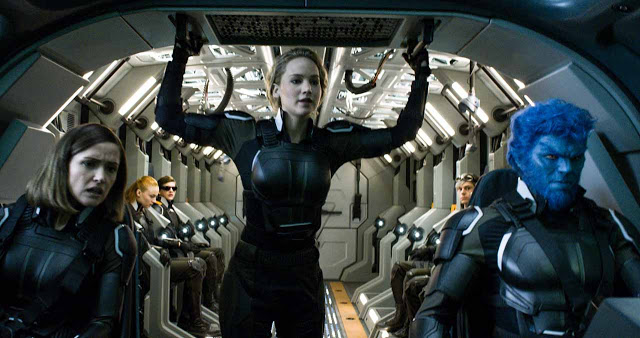
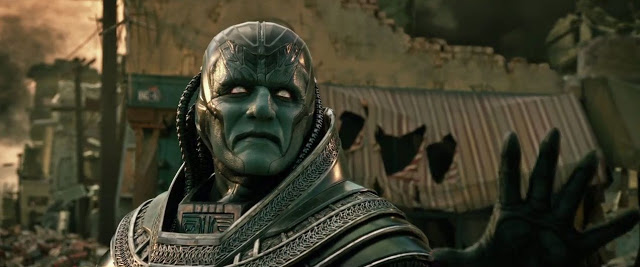
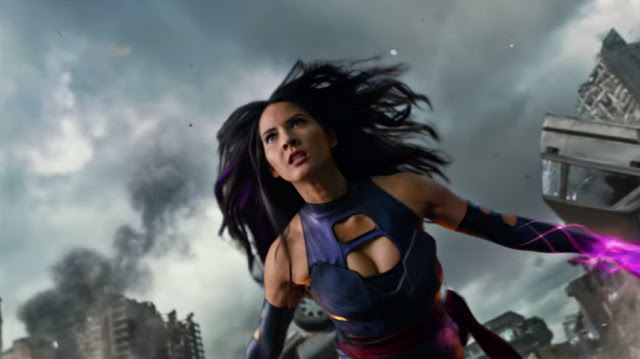
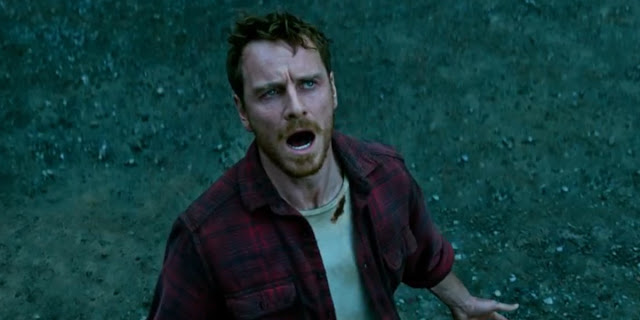
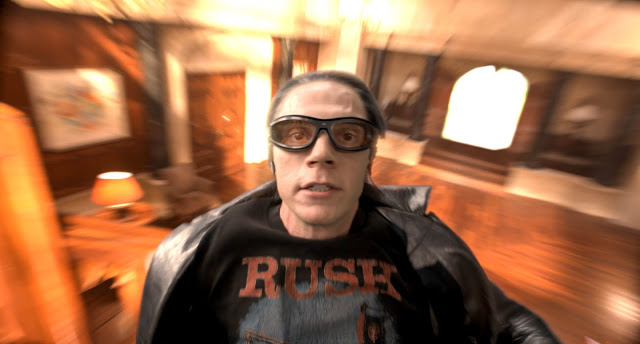
I agree that Apocalypse was a bland villain. Also chuckled at your Jean/Tom Green comparison.
Great review.
– Zach (http://fadetozach.blogspot.com)
Ha! The mystique fake-out (as well as the MI masks) should be banned.